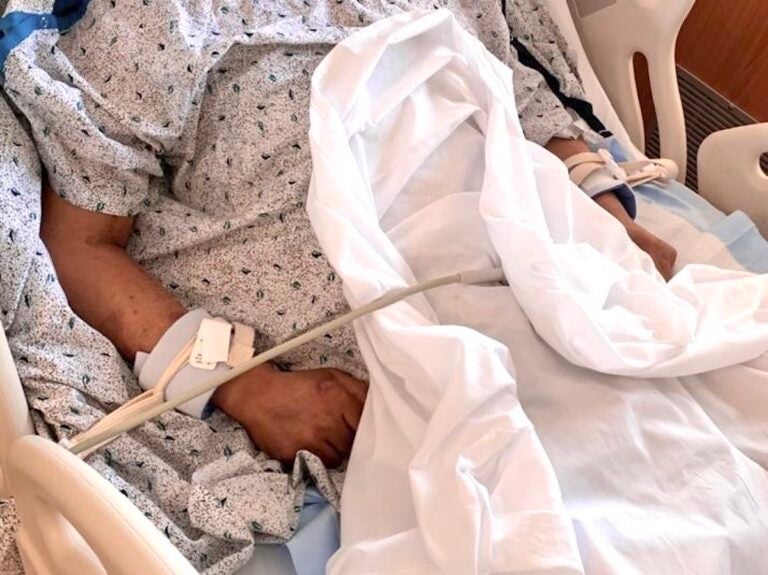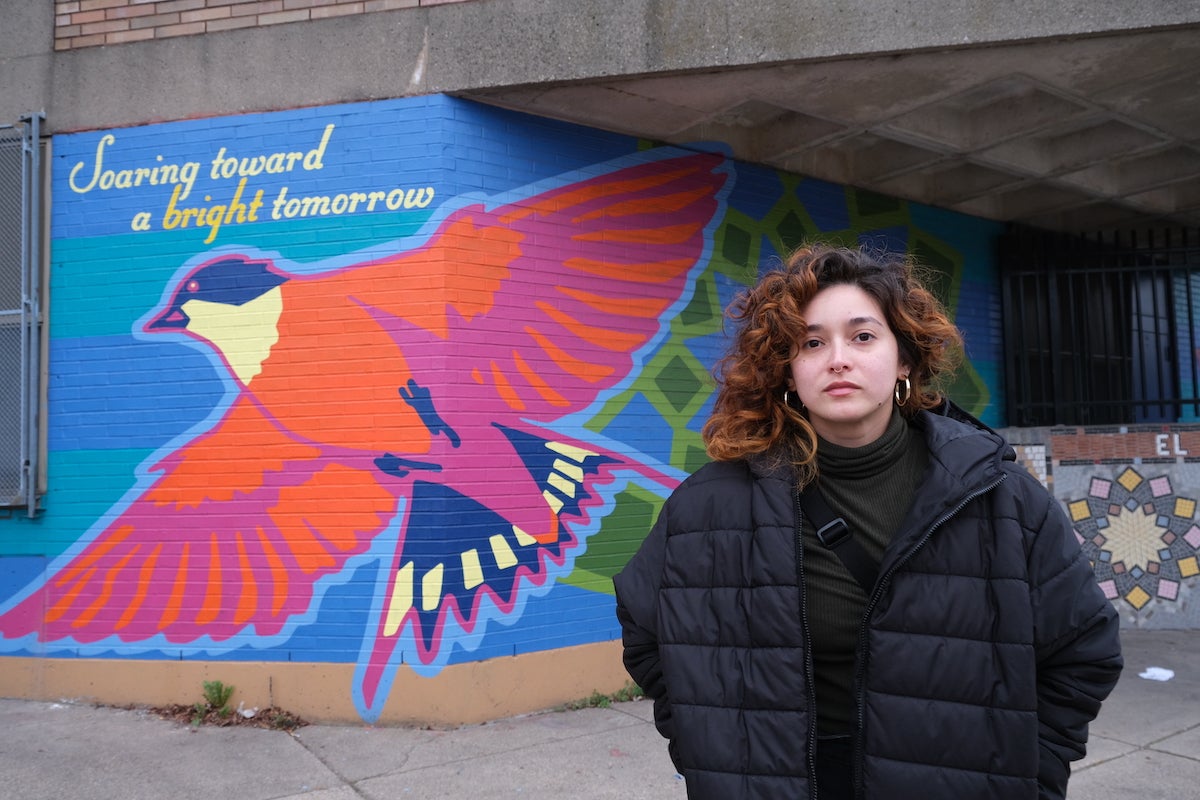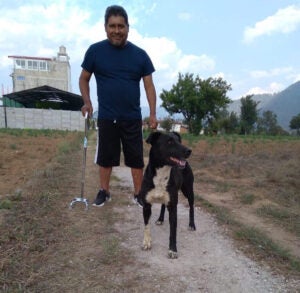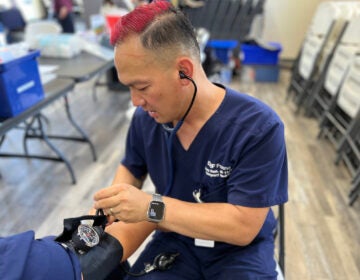Desperate for care, patients face the threat of ‘medical deportation'
Hospitals are legally required to care for undocumented patients in emergencies. But when a patient is too sick to be discharged, some turn to a controversial practice.
Listen 11:30
A carpenter who is undocumented and uninsured recovers in a hospital bed after being struck by a motorcycle on Roosevelt Boulevard in Philadelphia, Pa. (Courtesy of Claudia Martínez).
This story is from The Pulse, a weekly health and science podcast.
Find it on Apple Podcasts, Spotify, or wherever you get your podcasts.
In Louisville, Kentucky, Virginia, 23, has been waiting at a hospital for her father Marvin to wake up from a coma. She grabs his arm, touches his feet. Sometimes his toes wiggle – a sign that tells Virginia he’s listening. But as the days turned into weeks, Virginia said staff at the hospital lost their patience.
“Since the second day my father was here, I just feel like they’ve been trying to get us out the way,” Virginia said.
Marvin, 49, was admitted to the intensive care unit at UofL Hospital in mid-June after hitting his head during a seizure. Once stabilized, most patients in Marvin’s condition would be transferred into a long-term care facility to free up the ICU bed for someone new.
But Virginia’s father isn’t a typical patient. The doctors can’t transfer him anywhere new because he’s both undocumented and uninsured. (We are only using their first names to protect their privacy.)
And so Virginia says she was given an impossible decision: let the doctors take her father off life support or put him on a plane back to his birth country, Guatemala.
“The hospital is saying that due to not having health insurance they’re going to send him off,” she said. “As if he’s just a piece of package in the way.”
Virginia told the hospital staff that she didn’t feel comfortable sending her father back to Guatemala, a country he hadn’t been to in over 30 years.
“I am his support system,” said Virginia. “I am the best chance of having my dad live. To me, it’s inhumane.”
In a health system that has no safety net for uninsured, undocumented patients, the costs of intensive care for these patients can quickly pile up on hospitals. Emergency rooms are mandated to treat patients regardless of their ability to pay or their immigration status. But nursing homes, rehab centers, and long-term care facilities can all decline patients if they’re unable to pay. In some cases, patients can apply for emergency medical assistance, but that process varies state by state and can be complicated to navigate without legal support.
Taking up a fight
From a warehouse office in Philadelphia’s Kensington neighborhood, Adrianna Torres-Garcia, deputy director of the Free Migration Project, closely monitors a hotline for reports of what they call medical deportation: the removal of an uninsured immigrant patient from the U.S. by a hospital without the consent of the patient or their family.

Since 2016, Free Migration Project, a nonprofit, has become a sort of first responder for people like Virginia who desperately need medical and legal support.
“We call it medical deportation because once a person leaves or is transported out it’s impossible to come back,” Torres-Garcia said.
The organization is not exactly sure how common this practice is.
“We assume it happens everywhere,” Torres-Garcia said. “But we don’t have data because nobody tracks this. What we do know is that we’ve received calls from Wisconsin, from Indiana, from Washington, DC.”
Subscribe to The Pulse
One of those people who called for help back in 2020 is a woman named Claudia Martínez, a calm, soft-spoken woman who became an advocate for this cause after first-hand experience in her family.

Martínez’s uncle used to work in a carpentry shop making furniture before he got struck by a motorcycle on Roosevelt Boulevard in Philadelphia in 2020.
He suffered severe injuries and ended up in a coma just like Virginia’s father – without insurance or legal residency.
Not long after being admitted to the hospital, Martínez said administrators reached out to MedEscort, a transportation company, to fly him to Guatemala, his birth country which he hadn’t been to in 20 years.
“It was impossible,” Martínez said. “If you looked at my uncle, he was practically more dead than alive.”
There seemed to be no other options and Martínez felt conflicted making this decision for her uncle who wasn’t even conscious. But as the financial burden on the hospital kept growing, so too did the incentives to move him out.
Health system’s dilemma
Half of the United States’ undocumented immigrants are uninsured, a survey from the Kaiser Family Foundation estimates. Under law, hospitals are required to provide adequate care for anyone in emergency situations. But as the days go by, caring for these patients can become a significant burden on medical systems. Hospitalization typically costs around $14,000 per inpatient stay, according to the American Hospital Association, with each additional day costing thousands of dollars.
In order to avoid these costs, some hospitals will hire transportation companies like MedEscort to fly patients back to their countries of origin as a cost-effective compromise where hospitals save money and patients continue to get care, just not in the United States. These flights can cost tens of thousands of dollars, but the one-time expense allows hospitals to free-up a bed for new patients. For some, this may be a preferable option with more family support, but for others — it can lead to devastating or even fatal results.
“Some people would say that hospitals should care for a patient regardless of their insurance or immigration status, but the hospitals, on the other hand, are going to say they have a duty to be wise stewards of scarce resources,” said Mark Weller, a lawyer who sorts out immigration logistics for MedEscort.
Weller said consent is not always easy to obtain from patients or their families, but it’s an important consideration for MedEscort’s operations.
“I disagree with the term medical deportation,” Weller said. “I think it’s a compassionate, safe patient discharge. They’re just moving that patient to a lower-cost setting. They don’t have to have the exact same level of care they would have in a U.S. hospital, but they need to have an adequate care facility back in that home country or in a home setting.”
Weller said there could be benefits from being supported directly by family in a more familiar setting.
But for Martínez’s uncle, she said, this wouldn’t have been the case.
He left Guatemala 20 years ago and she wasn’t sure if his wife would be able to care for him in his unconscious state. Eventually, Martínez got help from advocacy organizations like the Free Migration Project to get emergency medical assistance, and was able to move her uncle to a long-term-care facility in Philadelphia. Over time, his condition improved and he’s now able to walk with a cane.
Ban on ‘medical deportation’
In December of 2023, Philadelphia became the first city to ban medical deportation, which the bill defines as “the forcible act of medical repatriation without consent.” The Free Migration Project advocated for this new law alongside Martínez who was there to celebrate on that day.
“The truth is, I was very happy,” said Martínez. “I even cried with happiness.”
“I still can’t believe it because I know what I lived, what I suffered. Now we can prevent this from happening to someone else.”
But just because this practice is banned in Philadelphia doesn’t mean there are new resources or safety nets for uninsured or undocumented patients.
After three years of living in the long-term-care facility, Martínez’s uncle couldn’t get emergency medical assistance any longer. And without that support, it became too expensive for his family to pay out-of-pocket. So, he bought a flight home to Guatemala and has been there since in the care of his wife and children.
Martínez said she misses him a lot, but they keep in touch over WhatsApp, sharing photos and updates on his health.

In Louisville, Kentucky, Virginia’s father continues to receive care while in a coma. With support from the Free Migration Project and Kentucky Equal Justice Center, Virginia says she was able to apply for a medical deferred action and financial aid that may help cover some of the costs.
“I guess I feel a little bit better,” said Virginia. “But I’m still on my toes.”
Julian Abraham contributed reporting to this story
Support for WHYY’s coverage of health equity issues comes from the Commonwealth Fund.
WHYY is your source for fact-based, in-depth journalism and information. As a nonprofit organization, we rely on financial support from readers like you. Please give today.






